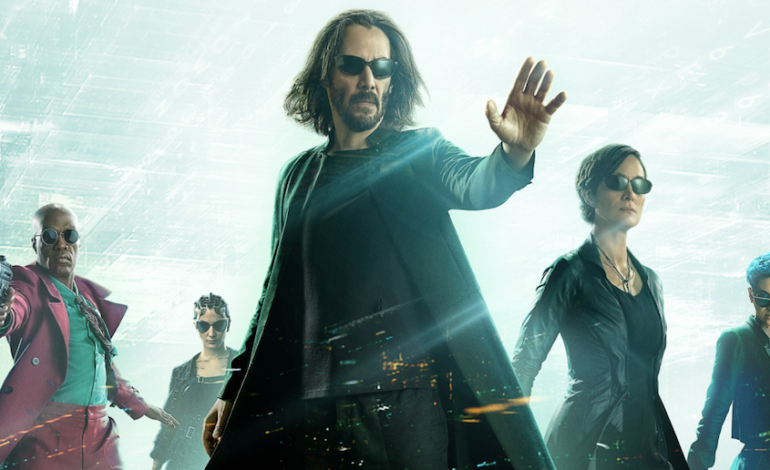

In 1999, cinema was changed forever with the release of The Matrix by the Wachowski siblings. The film’s distinct visual style, both with action and costuming, created something that had never been seen before. The film revolutionized almost every aspect of modern action cinema.
Following the success of that first film, a plethora of other media came out revolving around that universe (including the often forgotten anthology The Animatrix). They were all released around 2003, the largest of which being the two sequels, released in the same year, The Matrix: Reloaded and The Matrix: Revolutions, though neither ever truly lived up to the first film.
However, after the events of the final film in the franchise, the series lay dormant for nearly eighteen years. Now Lana Wachowski, without the help of her sister Lilly, returns to helm the franchise that made her name synonymous with action: the newly released The Matrix: Resurrections.
The film stars returning icons Keanu Reeves and Carrie-Anne Moss as Neo and Trinity, while Jonathan Groff and Yahya Abdul-Mateen II fill in for former actor in the series. The film also stars a mix of returning and new stars to the franchise in Jada Pinkett Smith, Jessica Henwick, Priyanka Chopra Jonas, and Neil Patrick-Harris.
A mix of complex ideas and solid action, The Matrix franchise is resurrected this holiday season in a big way. However, is a return to the Matrix necessary? Or would it have been better to just simply keep the trilogy untouched?
Well, The Matrix: Resurrections has a lot of good in it and it is easily the best film since original.
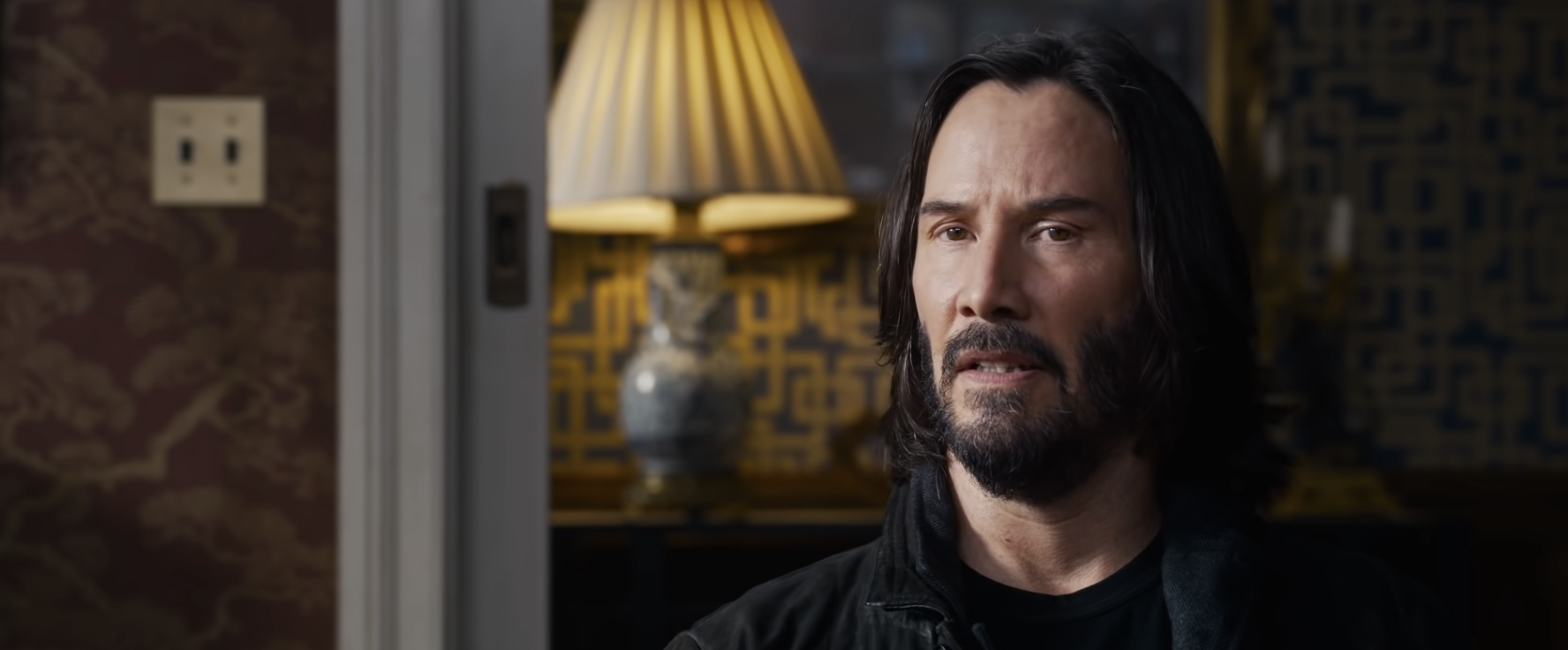

The Good
The first half of the movie is a lot of fun. After an initial action scene, the subsequent life of Thomas Anderson is engaging and brings a meta-commentary on action cinema that is really well done. There are unique montages and motifs that tie in all of the previous films. Everything in this new contemporary Matrix reality is a joy to watch, even with Mr. Anderson clearly being blissfully ignorant of the lie of a world he is living in.
Lana Wachowski as well as cinematographers Daniele Massaccesi and John Toll do a wonderful job of reintroducing the audience to the visual world of the Matrix. The first sequence in particular following Jessica Henwick and Yahya Abdul-Mateen II running from agents through doors is one of the best sequences in the film. Similarly, the third act action sequence, a chase scene through the streets of a busy city, is pretty stunning as well. Though nothing truly tops any action from the original series. Those sequences are simply iconic.
The visuals are cleaner than ever. While the first films were revolutionary at the time, the technology at the time does not hold a candle to the capability filmmakers have today. Following the original, films like Avatar and the MCU have revolutionized CGI and filmmaking. This is easily the most visually appealing in terms of cameras used. The elements that took viewers out rewatching any of the other films are completely removed here, this is not necessarily better technique, just simply better technology.
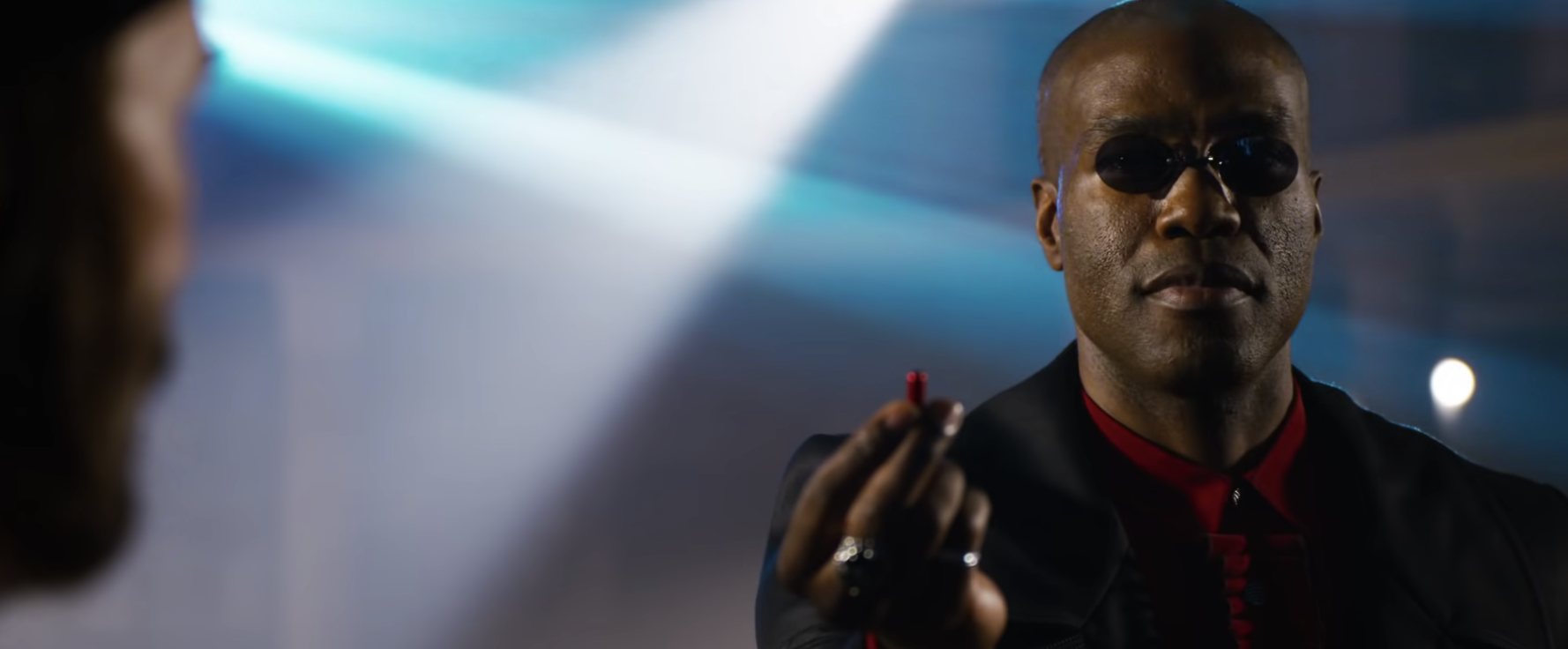

The newcomers are also a welcomed addition to the film. Yahya Abdul-Mateen II brings a different energy to Morpheus. While he is in the film a lot less than Fishburne is in the first three movies, he brings a sort of playful energy to Morpheus that was unexpected. His costuming is also on point. Every time he comes on screen, the suits he wears are some of the coolest costumes ever put to screen. It is incredibly fitting to have a programed version of Morpheus with progressively sleeker suits. Matrix costumes will for sure be back halloween 2022.
Jessica Henwick also brings a nice energy to more or less an evolution of the Trinity character in the first film. She does not play Trinity or even a version of her, but she is a vehicle for the audience to understand the Matrix a little better, which is essentially Trinity’s role for Neo and the audience in the first film. The first sequence with both Henwick and Abdul-Mateen creates a good place for the series to go if they choose to leave the original characters of Neo and Trinity.
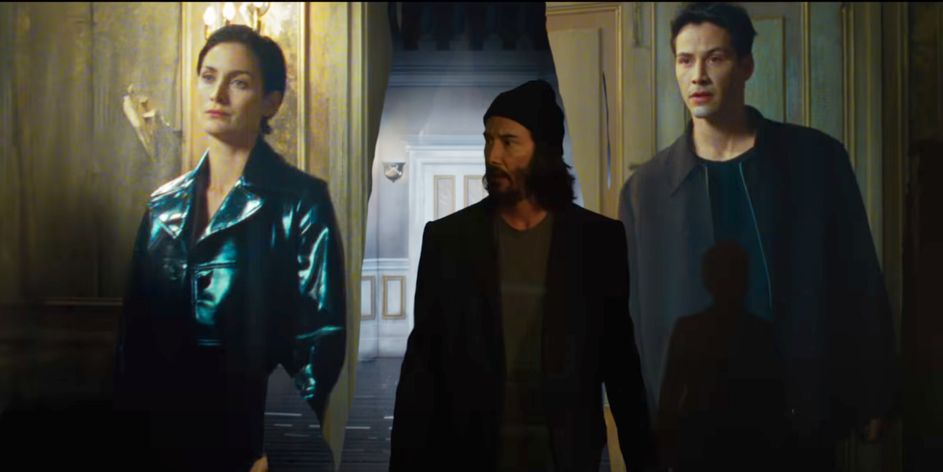

The best parts of the film are hands down Neo and Trinity. Both characters are synonymous with the series and their relationship is at the core of this new film, just as the other films were. Their reunion is something that is built up nicely too and delivers in almost every way. Similarly to Twin Peaks: The Return, the audience does not get every reunion right away. The filmmakers cleverly make the audience miss the characters throughout the duration of the film, and when they ultimately do come together it is quite emotionally resonant.
The thing that brings comfort more than anything are the performances from Reeves and Moss that remind the audience that they are watching a film that feels like a Matrix film. Without these two leads, the film would be no more than a generic action film.
The Bad
While there is a lot to love about the film, there are also a few head scratching moments, the middle drags a good amount due to not focusing on Thomas Anderson all that much. The new characters that have not been mentioned yet, leave a little to be desired.
The villains particularly leave something to be desired. Hugo Weaving is hard to replace and without getting into any spoilers about who plays who, the villains are something that is missing in a franchise that was helped in large part to an insanely watchable Agent Smith in the first three films. While Weaving appears in archival footage, it is a noticeable hole that is left without his iconic performance.
That’s the thing about the film, similar to Weaving not being in it, the actor that portrays this iteration of Agent Smith is very good, but it is just not Agent Smith. There’s something missing in this film that keeps it from being incredible.
It’s almost there, but it isn’t.
That’s the best way to address the issues with this film. It’s almost there, but it isn’t.
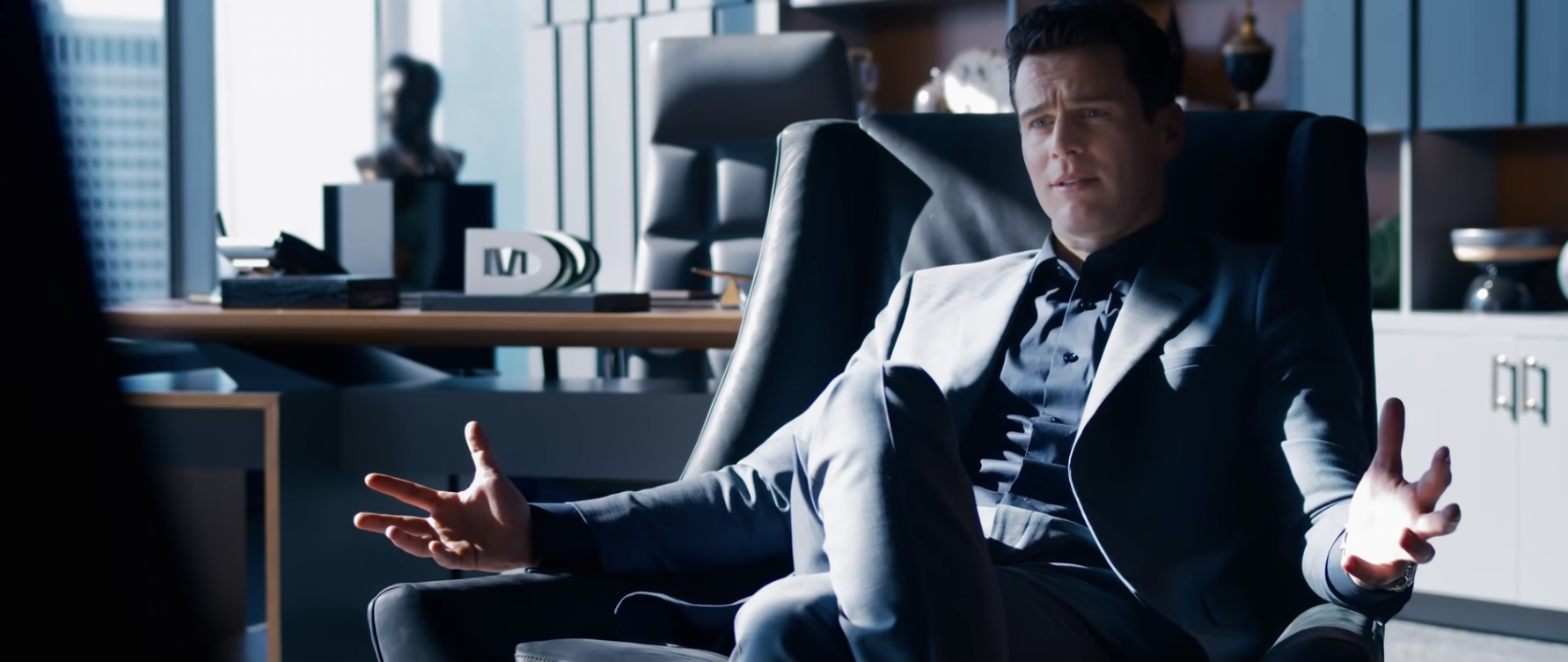

A similar thing happens with the new “bullet-time” that they introduce in the film. Again, avoiding spoilers, the character that creates this new time bending move should be intimidating and have all the power whenever they are in a scene, but the performance is simply not as formidable or scary as Agent Smith was in the original films, in addition to the new “bullet-time” being much too overpowering.
This is not to say that anything is horrible, it all just feels so close to being great, but unfortunately falls short. This happens similarly with the climax of the film, it is all there, but it does not feel complete because it is not a conclusion.
The best aspect of the original The Matrix was that it was a complete story, similarly with the sequels, it was done after the third one came out, but with this film there is a clear set-up for a sequel, so much so that this story does not feel finished. Which is a bummer because the last shot of the film is exciting. It makes an audience member wish it was a build to the final battle, but instead it just ends, and tries to get people back for a movie that has not been made yet.
Conclusion
The Matrix: Resurrections is by no means a poorly written, acted, or directed film. Quite the opposite in fact. It is sleek, fun, and pays homage to the series and moves forward in an exciting way. However, for a sequel to a film that was so revolutionary, it is disappointing to see a reasonably formulaic end product.
The first half of the film gives so many meta-jokes that it oddly sets itself up for failure. The film wants us to enjoy a meta-spinoff of the original, but in the end sets up for an endless amount of sequels, similar to most other big blockbusters these days.
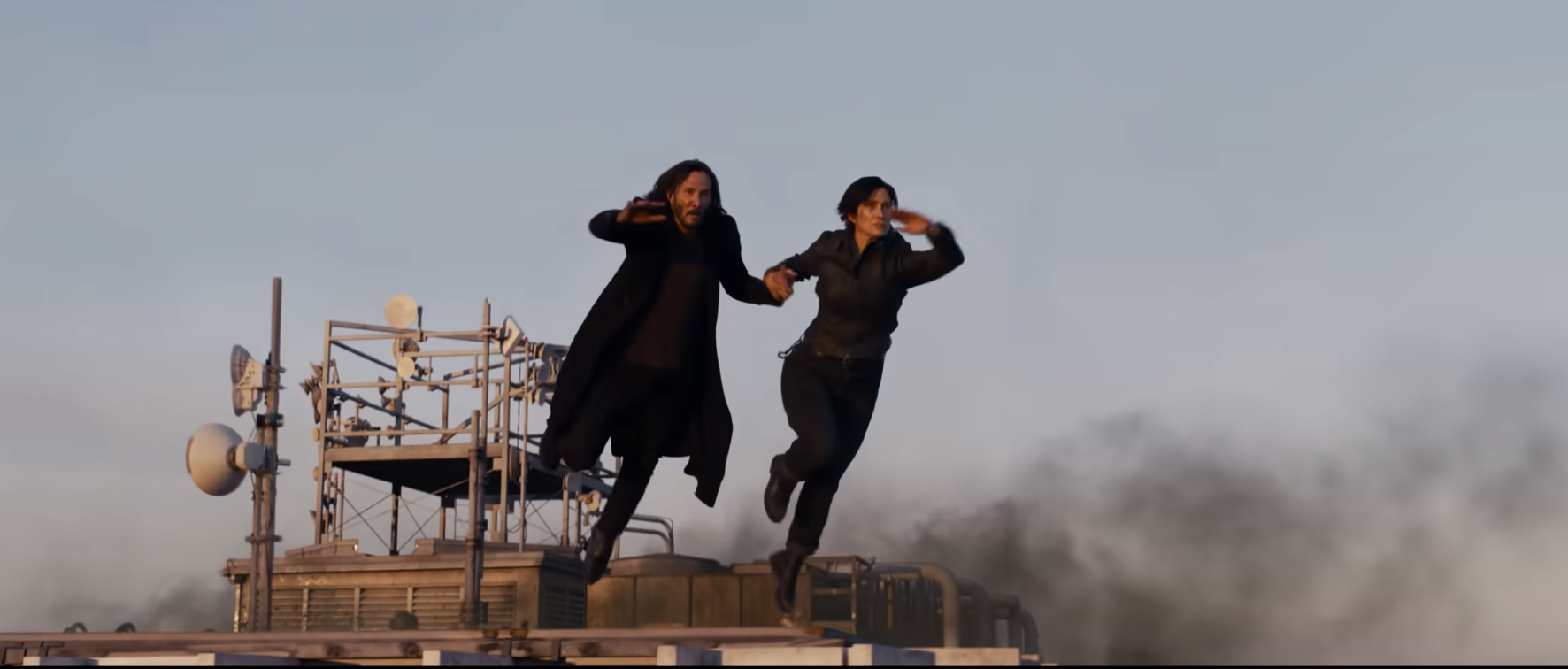

Verdict 3 out of 5
This is not a bad film, but as stated before: The Matrix revolutionized modern action cinema, so it is a shame that the sequel to it is simply another modern action movie. Though it is tough to make something that revolutionary again.
If anything there is a spark of hope that Lana Wachoski has a three movie plan and maybe this new trilogy will end better than the last, even though it started worse than the first.
